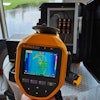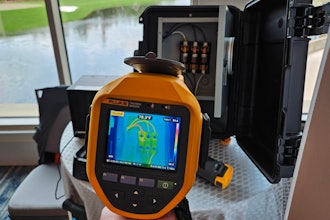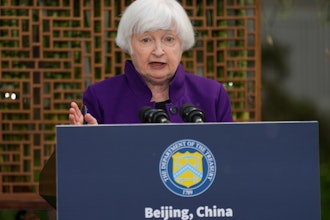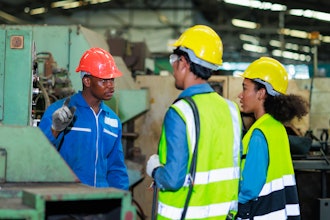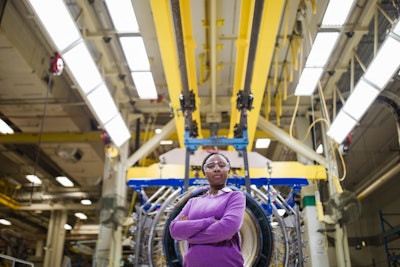
Manufacturing needs people. More specifically, manufacturing needs women.
Manufacturing executives around the world rank talent the top driver of manufacturing competitiveness, but at the same time, the U.S. manufacturing industry faces an estimated two-million-worker shortfall over the next decade. Women can be a solution to the industry’s skills gap problem through increased visibility for female leaders, flexible work practices and other important industry-wide changes.
Women bring a fresh perspective to the diverse and fulfilling roles the industry has to offer. There are vast career opportunities available – from engineering to design to marketing. There’s a place for everyone in this industry.
Today, a new study “Women in Manufacturing: Stepping up to make an impact that matters,” points to how companies can effectively recruit, retain and advance talented women in manufacturing, and illustrates how women in manufacturing are making an impact in the industry. The joint study is the result of more than 600 survey responses from women professionals in the manufacturing industry, along with more than 20 manufacturing executive interviews.
This study, released by The Manufacturing Institute, Deloitte and the APICS Supply Chain Council, confirms the importance of increasing the amount of women in the manufacturing workforce and that manufacturers are missing a critical talent pool, which could aid in closing the skills gap.
 (Image credit: GE Reports)
(Image credit: GE Reports)Some key highlights from the study include:
- Nearly three-fourths (70 percent) of women indicate they would stay in manufacturing if they were to start their career today;
- The most important employment characteristics for women are opportunities for challenging and interesting assignments, attractive pay and work-life balance; and
- The most impactful programs to retain women include formal and informal mentorship programs, flexible work practices, and increasing the visibility of key leaders who serve role models.
The study also reveals that recognition has a significant impact on promoting opportunities for women in manufacturing. The Manufacturing Institute’s STEP (Science, Technology, Engineering and Production) Ahead initiative, for example, aims to promote the importance of women in manufacturing while recognizing their impact on companies and communities.
Over the last four years, 542 women have been recognized by the STEP Ahead initiative. Reporting insights from these honorees, 75 percent of those surveyed indicated that being recognized helped raise visibility of opportunities for women in industry. Tomorrow in Washington, D.C., The Manufacturing Institute will honor another 130 women for their leadership and accomplishments in the industry.
Those women who are recognized also tend to be more active in engaging others from the industry. The study shows that over the last five years, STEP Ahead Award winners have engaged with more than 300,000 individuals, from peers in the industry to school age children. Nearly 90 percent indicate they are engaged with individuals to raise the visibility of the industry, 92 percent are engaged in efforts in the development of women, and 70 percent are engaged with K-12 system to encourage young girls and boys to consider careers in manufacturing.
The future of manufacturing relies on women. And, as an industry, it is our responsibility to demonstrate our commitment to building the workforce of tomorrow.
AJ Jorgenson is the AVP of Strategic Engagement at The Manufacturing Institute, the non-profit affiliate of the National Association of Manufacturers (NAM). In her role, Jorgenson develops and executes all strategic operations for the Institute’s largest initiative, STEP Ahead. She ensures that the Institute is the authority on the attraction, qualification, and development of world class manufacturing talent.

